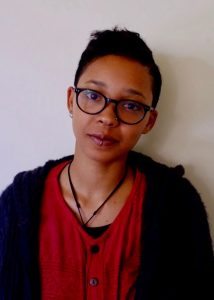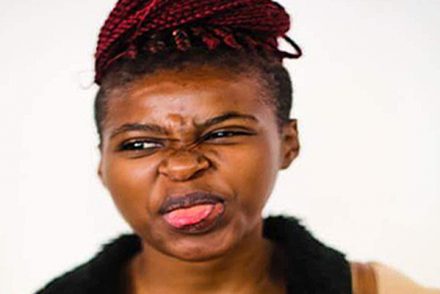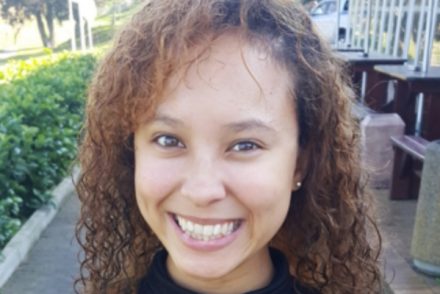PROFILE
 Lisa Julie holds a BA (Hons) in English literature from the University of the Western Cape. She is currently completing an MA in Creative Writing from the same university. Lisa was born in Cape Town and grew up speaking English and Afrikaans. She grew up in an area referred to as the Cape Flats, an area consisting of a vast number of townships in which coloureds and Africans live. She is deeply influenced by the culture and language of South Africans.
Lisa Julie holds a BA (Hons) in English literature from the University of the Western Cape. She is currently completing an MA in Creative Writing from the same university. Lisa was born in Cape Town and grew up speaking English and Afrikaans. She grew up in an area referred to as the Cape Flats, an area consisting of a vast number of townships in which coloureds and Africans live. She is deeply influenced by the culture and language of South Africans.
CREATIVE WORK
How we know the day is ending
The athaan goes off and the children run home. And we don’t see them again until morning
The street lights come on. The windows are shut and the curtains are drawn
The staff vans bring the daddies home. The police vans park and wait
The road is still and the mommies get tomorrow’s bread and milk
The daddies call the big brothers from the corners. And the other boys hide the dice
The small children eat on the couches. The big sisters wash the babies
The daddies smoke on the stoeps. The mommies dry the nappies
The road is still and the big brothers unchain the dogs
The daddies roll up the prayer mats. And the mommies iron tomorrow’s clothes
The small children find their beds. The big sisters rock the babies
The house is quiet. The daddies lock the doors
The road is still and everyone goes to sleep
The whistling starts. And the manne stand in circles on the corners
The police vans start circling and the dogs start barking
The road is not still and we watch from the windows
Things no longer there
The glass of whisky. The only one he was allowed to have.
The comedy that followed. Whenever he was allowed more than one.
The hydrangeas in the centre of the table. Because he no longer had the energy to work in the garden.
The sixth chair. Because somebody needed to put something somewhere high.
The citronella oil candle. Because Ouma couldn’t take the smell and the miggies didn’t bother her anymore.
The hooters somewhere down the street. That fetched the neighbours for the night shift.
The shouting competing with the hooters. Because the children wouldn’t stop laughing and rocking on their chairs.
The neighbour’s idling tow-truck. That revved over Ouma’s prayer.
The talk about the Heilige Gees. First the nodding and then the yawning and then the sinking into the chairs.
The two children. Because the schools weren’t good enough and because Ouma no longer had the energy.
REFLECTION
The individual pieces are both set in a Cape Flats setting. This meant that I needed to use a specific kind of language and particular voices in order to make the works authentic – in order to make them believable. The people of the Cape Flats played vital roles in the liberation movement in South Africa. However, the socio-economic conditions in reason times, seemed to have worsened. This reality prompted me to write about the various forms of restraint and the limitations of freedom – the limitations of liberty.
PUBLICATIONS
Cutting Carrots the Wrong Way, poems (Uhlanga Press) 2017
Writing Three Sixty Journal, poems (University of the Western Cape) 2017
Underground Art & Literary Journal, Issue 8.1, poems (Georgia State University) 2017



